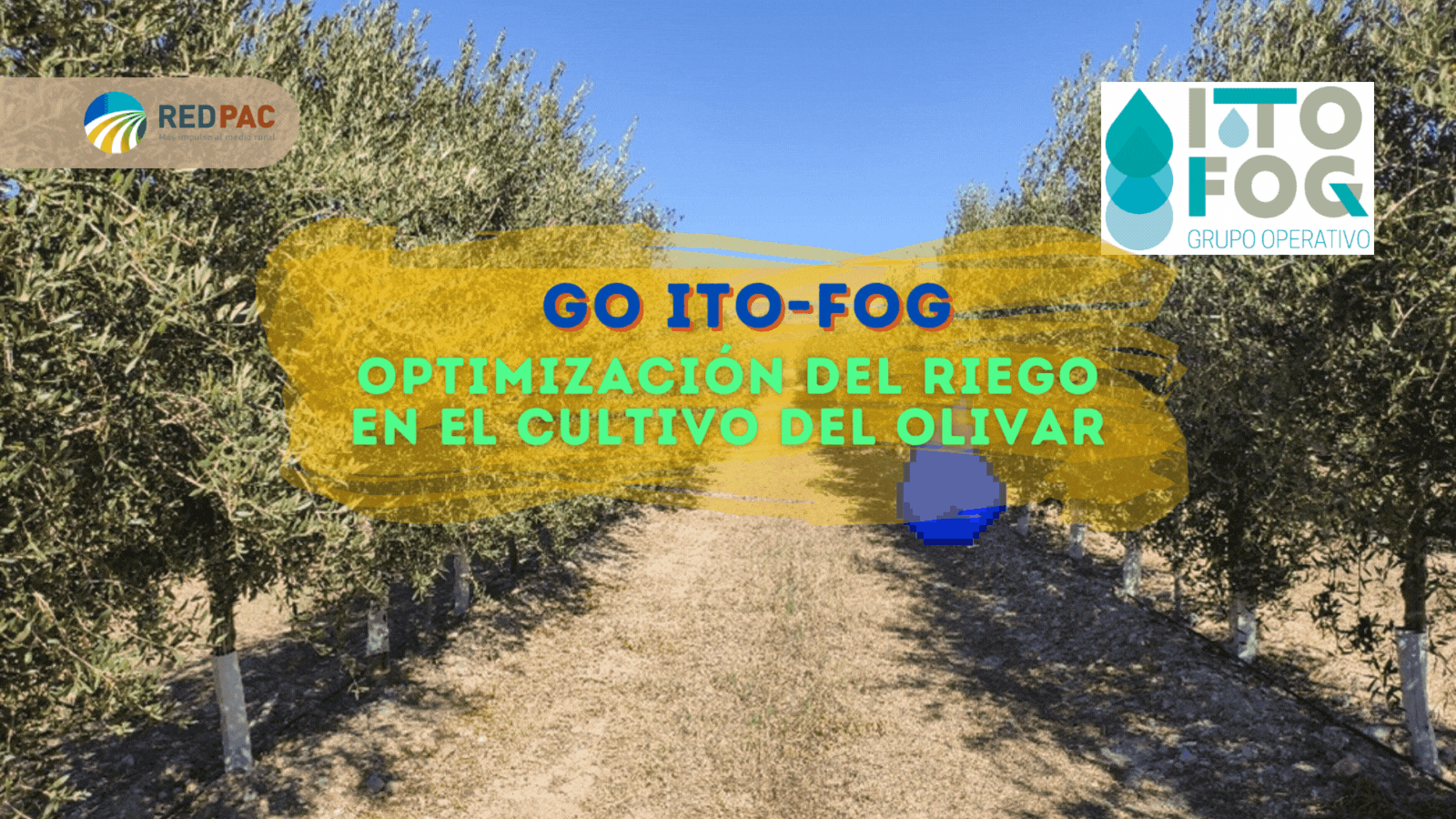
03 de May de 2023
The Operational Group is working on developing an irrigation controller based on low-cost hardware and software systems and testing irrigation strategies in various production environments.
- The ITO-FOG Operational Group (GO) studies the performance of olive crops
- The experiments will allow us to see whether the quality of the oil improves with irrigation strategies and whether it is affected by deficit irrigation.
Olive cultivation is typically dryland, but the use of irrigation offers several advantages, such as increased production, monitoring the health of the olive trees, and combating pests. Furthermore, farmers need to see how their crops perform under much more restrictive water conditions than a few years ago.
In view of this, the The ITO-FOG Operational Group began working in 2020 to provide alternatives to farmers facing problems such as drought or insufficient production.
This is how the Hispatec Group , a technology solutions company for agricultural and agroindustrial management and project coordinator, began collaborating with the Tecnova Foundation to explore ways to improve oil production with different planting patterns and irrigation strategies.
The project takes place in the Almería town of Lubrín and uses digitalization tools on plots.
Strategies
ITO-FOG guides its project around three axes:
- Development of an irrigation controller. It uses low-cost hardware and software systems that make it easier for farmers to establish specific irrigation strategies.
- Irrigation strategies in different production scenarios. It uses two possible irrigation scenarios, one with standard crop requirements and the other with deficit irrigation to analyze crop performance in this type of situation.
- Evaluation of results. The potential increase in olive production will be analyzed through studies of irrigation strategies with intelligent control and reduction of water consumption.
The project has already studied performance with different irrigation strategies, but the installation of irrigation modules means that "farmers will be able to measure their irrigation strategies so they can enter the data collected last year and what conditions they put into their strategies," Alba Gutiérrez Domínguez, Head of Innovation at the Hispatec Group, explained to the National Rural Network ( RRN ) .
How does the software work?
Such a technological system may seem overly complex, but it is designed for intuitive use and cheap and simple application.
Thus, its use is carried out in a " mobile or web app , where farmers can consult the data from the meteorological stations installed by Tecnova", low-cost stations that send the data to the irrigation module and the software tool.
From the app, farmers can view information and forecasts and, ultimately, establish their irrigation strategies and set conditions that change irrigation according to different situations, such as stopping irrigation if it's raining.
“This project allows them to see which irrigation strategies are most appropriate and what effects they are having during periods of drought ,” explains Gutiérrez.
Project phases
The first phase, the documentary phase, has been completed with the study of the software tool's methodologies. The second phase, the experimental phase, has already seen two of the three activities completed. Thus, the systems and strategies for optimizing irrigation and managing crop water stress have been defined. Phases three and four have already been completed, with reports written and the dissemination process underway.
Finally, after the end of the harvest campaign in February 2024 , the GO will analyze whether the strategies have made it possible to improve the quality of the oil , and whether the quality and production have been affected by the deficit irrigation strategies.
Members and funding
ITO-FOG is made up of the Hispatec Group , the Technological Center for Auxiliary Technologies in Agriculture, Post-harvest and Packaging ( Tecnova Foundation ); Agrícola García SL , Oleocampo, the Andalusian Cooperative Society ; and CITOLIVA .
The total budget of the Operational Group is 247,535 euros , through aid co-financed 90% by the European Agricultural Fund for Rural Development ( EAFRD ) and 10% by the Ministry of Agriculture, Fisheries, Water and Rural Development of the Regional Government of Andalusia.











